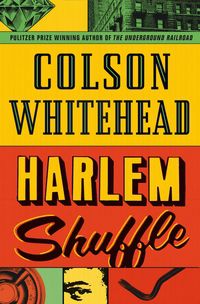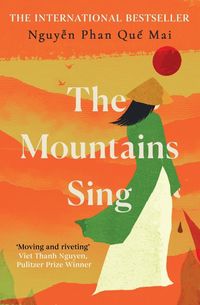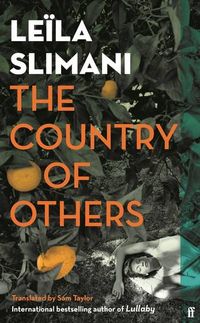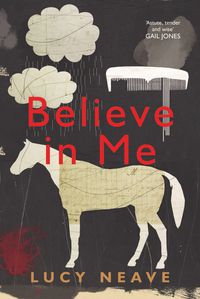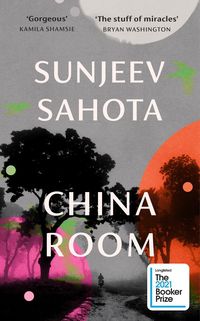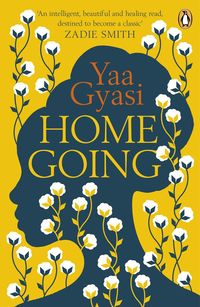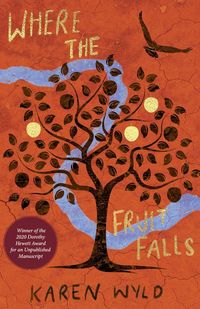There’s something particularly captivating about multi-generational family sagas, those masterful works that seem to effortlessly trace the ties that bind over decades and sometimes even centuries. These novels invite an intense emotional investment; the ensuing intimacy imbues these stories with incredible staying power. Through accounts of often absorbing detail, they remind us that history is always personal.
Below are ten moving family sagas and you can browse our full collection for even more stories following the fate of families across generations.
Harlem Shuffle by Colson Whitehead
To his customers and neighbours, Carney is an upstanding salesman of reasonably-priced furniture, making a life for himself and his family. Few people know he descends from a line of uptown hoods and crooks, and that his facade of normalcy has more than a few cracks in it. See, cash is tight, so if his cousin Freddie occasionally drops off the odd ring or necklace at the furniture store, Ray doesn’t see the need to ask where it comes from. He knows a discreet jeweller downtown who also doesn’t ask questions.
Then Freddie falls in with a crew who plan to rob the Hotel Theresa - the ‘Waldorf of Harlem’ - and volunteers Ray’s services. The heist doesn’t go as planned; they rarely do, after all. Read our review here.
The Mountain Sings by Nguyen Phan Que Mai
Hà Noi, 1972. Huong and her grandmother, Tran Dieu Lan, cling to one another in their improvised shelter as American bombs fall around them. Her father and mother have already left to fight in a war that is tearing not just her country but her family apart. For Tran Dieu Lan, forced to flee the family farm with her six children decades earlier as the Communist government rose to power in the North, this experience is horribly familiar. Seen through the eyes of these two unforgettable women, The Mountains Sing captures their defiance and determination, hope and unexpected joy.
Nguyen’s richly lyrical debut weaves between the lives of grandmother and granddaughter to paint a unique picture of the country’s turbulent twentieth-century history.
Song of the Crocodile by Nardi Simpson
Darnmoor is the home of the Billymil family, three generations who have lived in this ‘gateway town’. Race relations between Indigenous and settler families are fraught, though the rigid status quo is upheld through threats and soft power rather than the overt violence of yesteryear.
As progress marches forwards, Darnmoor and its surrounds undergo rapid social and environmental changes, but as some things change, some stay exactly the same. The Billymil family are watched (and sometimes visited) by ancestral spirits and spirits of the recently deceased, who look out for their descendants and attempt to help them on the right path. When the town’s secrets start to be uncovered the town will be rocked by a violent act that forever shatters a century of silence. Read our review here.
The Country of Others by Leila Slimani
Alsace, 1944. Mathilde finds herself falling deeply in love with Amine Belhaj, a Moroccan soldier, billeted in her town, fighting for the French. After the Liberation, Mathilde leaves France, following Amine to Morocco. But life here is unrecognizable to this brave and passionate young woman. Where she she once danced, bickered with her sister, her life is now that of a farmer’s wife - with all the sacrifices and vexations that brings.
Suffocated by the heat, by her loneliness on the farm, by the mistrust she inspires as a foreigner and by the lack of money Mathilde grows restless. As Morocco’s own struggle for independence grows daily, Mathilde and Amine find themselves caught in the crossfire…
Believe in Me by Lucy Neave
As a teenager in the 1970s, Sarah is forced to leave her home in upstate New York to accompany a missionary to Idaho. When she falls pregnant, she is dispatched to relatives in Sydney, who place her in a home for unmarried mothers. Years later her daughter, Bet, pieces together her mother’s life story, hoping to understand her better. As she learns more about Sarah’s past, Bet struggles to come to terms with her own history and identity, yet is determined to make peace with Sarah’s choices before it’s too late.
Lucy Neave’s moving and deeply personal novel explores the relationships between mothers and their children across three generations of one family.
The China Room by Sunjeev Sahota
Mehar, a young bride in rural 1929 Punjab, is trying to discover the identity of her new husband. She and her sisters-in-law, married to three brothers in a single ceremony, spend their days hard at work in the family’s ‘china room’, sequestered from contact with the men. When Mehar develops a theory as to which of them is hers, a passion is ignited that will put more than one life at risk.
Spiralling around Mehar’s story is that of a young man who in 1999 travels from England to the now-deserted farm, its ‘china room’ locked and barred. In enforced flight from the traumas of his adolescence - his experiences of addiction, racism, and estrangement from the culture of his birth - he spends a summer in painful contemplation and recovery, before finally finding the strength to return ‘home’. Read our review here.
Homegoing by Yaa Gyasi
Effia and Esi: two sisters with two very different destinies. One sold into slavery; one a slave trader’s wife. The consequences of their fate reverberate through the generations that follow.
Taking us from the Gold Coast of Africa to the cotton-picking plantations of Mississippi; from the missionary schools of Ghana to the dive bars of Harlem, spanning three continents and seven generations, Yaa Gyasi has written a miraculous novel - the intimate, gripping story of a brilliantly vivid cast of characters and through their lives the very story of America itself. Read our review here.
The Vanishing half by Brit Bennett
The Vignes twin sisters will always be identical. But after growing up together in a small, southern black community and running away at age sixteen, it’s not just the shape of their daily lives that is different as adults, it’s everything: their families, their communities, their racial identities. Ten years later, one sister lives with her black daughter in the same southern town she once tried to escape. The other secretly passes for white, and her white husband knows nothing of her past.
Still, even separated by so many miles and just as many lies, the fates of the twins remain intertwined. What will happen to the next generation, when their own daughters’ story lines intersect? Read our review here.
Where the Fruit Falls by Karen Wyld
Spanning four generations, with a focus on the 1960s and 70s, an era of rapid social change and burgeoning Aboriginal rights, Where the Fruit Falls is a re-imagining of the epic Australian novel.
Brigid Devlin, a young Aboriginal woman, and her twin daughters navigate a troubled nation of First Peoples, settlers and refugees - all determined to shape a future on stolen land. Leaving the sanctuary of her family’s apple orchard, Brigid sets off with no destination and a willy wagtail for company. As she moves through an everchanging landscape, Brigid unravels family secrets to recover what she’d lost - by facing the past, she finally accepts herself. Her twin daughters continue her journey with their own search for self-acceptance, truth and justice.
The Eighth Life by Nino Haratischvili
At the start of the twentieth century, on the edge of the Russian Empire, a family prospers. It owes its success to a delicious chocolate recipe, passed down the generations with great solemnity and caution. A caution which is justified - this is a recipe for ecstasy that carries a very bitter aftertaste.
Stasia learns it from her Georgian father and takes it north, following her new husband, Simon, to his posting at the centre of the Russian Revolution in St Petersburg. Stasia’s is only the first in a symphony of grand but all too often doomed romances. Across vast expanses of longing and loss, generation after generation of this compelling family hears echoes and sees reflections. Read our review here.


